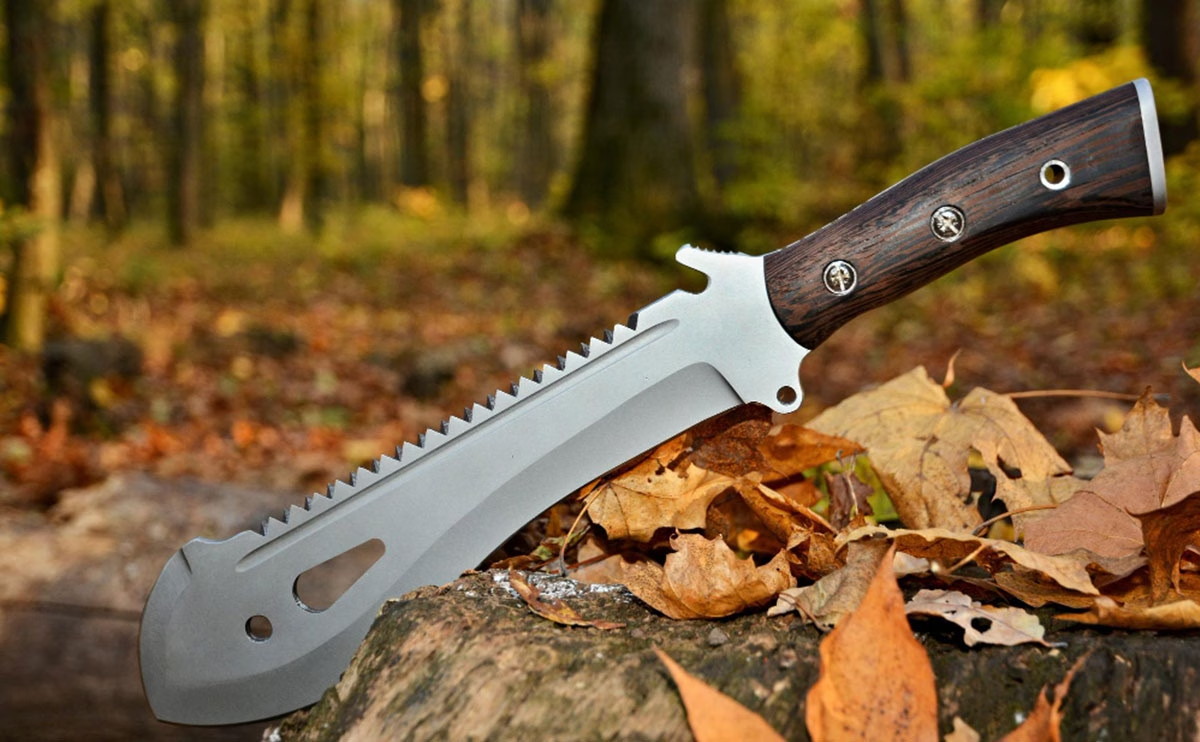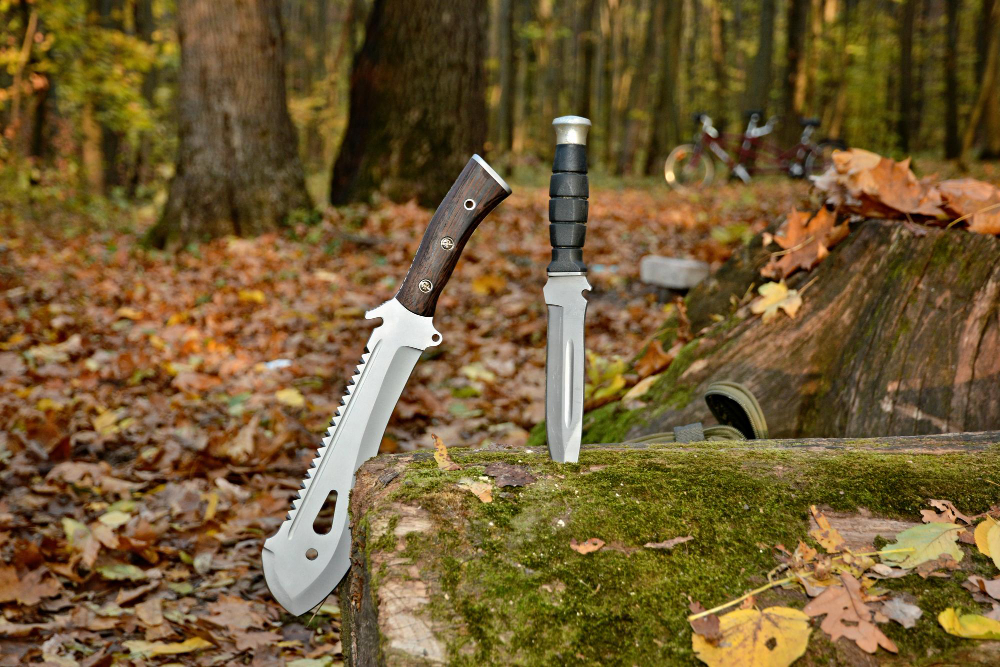How to Clean a Hunting Knife: A Simple Guide

A hunting knife is essential for outdoor adventures, and keeping it clean and well-maintained ensures longevity and performance. This guide will walk you through the steps to properly clean and maintain your hunting knife. Let’s dive into the process.

Table of Contents
Tools You’ll Need
Before you start, gather the following:
- Mild soap and warm water: To clean the blade.
- Cloth or paper towels: To dry the knife.
- Knife oil: To protect the blade from rust.
- Steel wool (optional): For removing rust.
- Rubber gloves: These are for safety when handling knives.
Step-by-Step Guide to Cleaning Your Hunting Knife
- Prepare Your Workspace:Set up a clean, dry space with good lighting. A countertop or workbench is ideal for this. Lay down a cloth or newspaper to avoid mess.
2. Clean the Blade
3. Rinse with water: Use warm water to rinse off dirt, blood, or other residues from the blade.
4. Soap up: Apply a small amount of mild soap to a rag and scrub the blade. This removes oils and grime.
5. Rinse and dry: Rinse again with clean water and immediately dry it with a soft towel.
6. Clean the Handle
The handle is just as important as the blade. Depending on the material:
- Wooden handles: Wipe down with a damp cloth and dry immediately. You can apply wood conditioner for added protection.
- Plastic or metal handles: Use soapy water and a sponge to clean them, and then dry thoroughly.
- Dry and Polish the Blade
Make sure your knife is completely dry. Any remaining moisture can cause rust. Use a lint-free towel to ensure it’s thoroughly dried, then apply a light coat of knife oil to the blade. This protects it from rust and keeps it in good working order.
2. Oil the Blade
3. Apply a few drops of oil to the blade.
4. Rub the oil in using a cloth, covering the entire blade.
5. Wipe off any excess oil to prevent dirt accumulation.
How to Clean After Every Hunt
After each use, clean your knife as soon as possible. If you can’t clean it immediately, wipe off excess blood, grease, or dirt with a cloth to prevent staining or corrosion.
Handling Blood and Grease
Blood and grease should be cleaned promptly to avoid long-term damage. If you’re out in the field, a quick wipe-down with a damp cloth works. Clean thoroughly as soon as you can.
Preventing Rust and Maintaining Sharpness
Rust is one of the biggest threats to your hunting knife. Here’s how to avoid it:
- Dry thoroughly after every use.
- Oil the blade regularly.
- Store in a dry, cool place to prevent moisture build-up.
Use a sharpening stone or honing rod to maintain sharpness. Regular sharpening will keep your knife performing at its best.
What to Do About Rust
If your knife develops rust:
- Use steel wool or a wire brush to remove the rust.
- After rust removal, clean the knife and reapply oil to protect it.
Storing Your Hunting Knife
Proper storage is crucial to preserving your knife. Consider these options:
- Leather sheath: Great for protecting the blade and preventing moisture.
- Knife rack or magnetic strip: Safe and easily accessible.
- Blade guard: Keeps the blade dry and protected.
Common Mistakes to Avoid
- Harsh chemicals: Don’t use harsh cleaners like bleach, as they can damage the blade or handle.
- Neglecting regular care: Make cleaning and oiling part of your routine to prevent damage.
Conclusion
Cleaning and maintaining your hunting knife is essential for keeping it in optimal condition. By following these simple steps—cleaning after each use, oiling regularly, and sharpening when needed—you can extend the life of your knife and ensure it performs well during every hunt.




